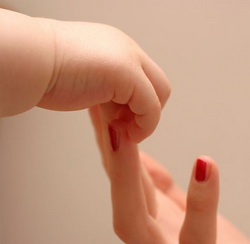Infertility is a problem for couples who want to have a biological child. Infertility maybe due to several factors such as a woman's failure to produce eggs, damage to her ovaries, or poor sperm quality or low sperm count from her partner. If a male has a low sperm count, IVF with ICSI (intracytoplasmic sperm injection) can be employed.

What is ICSI?
Intracytoplasmic sperm injection is used in severe cases for male infertility such as very low sperm count, also known as oligospermia, poor sperm movement, known as asthenozoospermia, and abnormally shaped sperm, known as atozoospermia. ICSI is also used to retrieve sperm from a man's urine which is called retrograde ejaculation. If IVF treatment cycle fails to achieve fertilization, ICSI can also used in conjunction with the IVF process. If a male cannot produce sperm when he ejaculates, it can be retrieved through testicular sperm extraction (TESE) which requires the use of ICSI.
The difference of IVF with ICSI from a normal IVF treatment is that in normal IVF treatment the egg is placed together with thousands of sperm cells in a process known as insemination. While in IVF with ICSI, the embryologist injects a single sperm directly into an egg. IVF with ICSI is similar to regular IVF treatment during ovarian stimulation and egg retrieval. They only differ in the fertilization process.
IVF with ICSI procedure
In IVF with ICSI, the male provides his sperm sample during the process. The developed egg is placed in a specialized holding pipette. To get the sperm sample, a very fine, sharp and hollow needle is used. After which, the needle is inserted through the shell of the egg, also called zona, and into the cytoplasm or the center of the egg. Then the sperm is injected in to the cytoplasm. The needle is removed afterwards. The following day, eggs are checked to see if there is fertilization. If fertilization occurred, the embryos will be transferred to the woman's uterus with the use of a catheter placed through the cervix.
IVF with ICSI success rate
With IVF with ICSI cases, the fertilization rate is about 70 to 85%. This figure refers to the percentage of eggs fertilized with the aid of ICSI. The fertilization rate is different from the success rate of pregnancy. Studies show that success rate for pregnancy for IVF with ICSI is much higher compared to IVF without ICSI. This means that with IVF with ICSI the quantity and quality of embryos become better. In cases of unexplained infertility, the problem may not be with the eggs but could be with the male sperm.
IVF with ICSI cost
IVF with ICSI normally costs between $1,000 and $5,000. This is added to the basic cost of IVF treatment which ranges $10,000 to $15,000. In IVF with ICSI there is a slight risk of having birth defects with only less than 1% as compared to normal pregnancy which has 1.5% to 3% birth defects. However, male babies who are born from IVF with ICSI may inherit the infertility condition of his father which can be passed on genetically.
